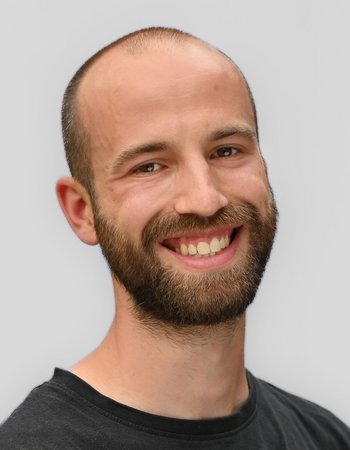
Ole Goltermann
Doktorand (Kohortenvertreter)
Akademischer Werdegang
| seit 2021 |
Doktorand, Max Planck School of Cognition, Leipzig Promotionsarbeit am Universitätsklinikum Hamburg-Eppendorf, Betreuer: Christian Büchel Lab-Rotationen in der Orientierungsphase: Veronica Witte & Arno Villringer, Simon E. Fisher und Christian Büchel |
|---|---|
| 2019–2021 | Master of Science in Psychology (Mind & Brain track), Universität Wien, Österreich |
| 2015–2018 | Bachelor of Science in Psychology, Universität Wien, Österreich |
| 2012–2015 | Bachelor of Arts in Business Administration & Dual Study Programme at Robert Bosch GmbH in Germany (Hannover, Stuttgart, & Hildesheim) & Malaysia (Penang) |
Forschungserfahrung
| 2020–2021 | Research collaboration, Department of Social Psychology (Prof. Andreas Mojzisch & Dr. Markus Germar), Universität Hildesheim |
|---|---|
| 2019–2020 | Research internship, Emotion, and Methods in Psychology (Prof. Ulrich Ansorge), Department of Cognition, Universität Wien, Österreich |
| 2018–2019 | Research internship, Department of Sustainability, Governance & Methods (Prof. Ivo Ponocny), Modul University Vienna, Österreich |
| 2017–2021 | Research assistance, Department of Social Psychology (Prof. Arnd Florack), Universität Wien, Österreich |
Lehre
| 2019–2021 | Statistical advice on personal website: Free (Donation-based, Sea-Watch e.V.) statistical and methodological advice for bachelor and master theses in psychology |
|---|---|
| 2018–2021 | Teaching assistant, Department of Social Psychology, Universität Wien, Östereich |
| 2017–2018 | Student Advisor, Faculty of Psychology, Universität Wien, Östereich |
Stipendien
| 2016–2020 | Merit-based Scholarship Grant of the Austrian Government |
|---|---|
| 2017–2020 | Merit-based Scholarship Grant for Disabled Students, Universität Wien, Östereich |
Publikationen
Goltermann, O., Spisak, T., & Büchel, C. (2025). Concern about predictive performance of a pain sensitivity biomarker. JAMA Neurology. Advance online publication. https://doi.org/10.1001/jamaneurol.2025.2351
Hofmann, S. M.*, Goltermann, O.*, Scherf, N., Müller, K. R., Loeffler, M., Villringer, A., Gaebler, M., Witte, A. V., Beyer, F. (2025). The utility of explainable AI for MRI analysis: Relating model predictions to neuroimaging features of the aging brain Imaging Neuroscience, 3: imag_a_00497. https://doi.org/10.1162/imag_a_00497
Goltermann, O.*, Alagoez, G.*, Molz, B., & Fisher, S. E. (2024). Neuroimaging genomics as a window into the evolution of human sulcal organization. Cereb Cortex, 34, bhae078. https://doi.org/10.1093/cercor/bhae078
Goltermann, O., & Büchel, C. (2023). Improving fMRI-based prediction of individual pain ratings by accounting for interindividual variance. bioRxiv, 2023-07. https://www.biorxiv.org/content/10.1101/2023.07.06.548050v1
Hofmann, S. M., Beyer, F., Lapuschkin, S., Goltermann, O., Loeffler, M., Müller, K. R., Villringer, A., Samek, W., & Witte, A. V. (2022). Towards the interpretability of deep learning models for multi-modal neuroimaging: Finding structural changes of the ageing brain. NeuroImage, 261, 119504. https://doi.org/10.1016/j.neuroimage.2022.119504
Hofmann, S. M., Beyer, F., Lapuschkin, S., Goltermann, O., Loeffler, M., Müller, K. R., Villringer, A., Samek, W., & Witte, A. V. (2022). Towards the interpretability of deep learning models for multi-modal neuroimaging: Finding structural changes of the ageing brain. bioRxiv, 2021-06. https://doi.org/10.1101/2021.06.25.449906
Büsel, C., Sachse, P., Goltermann, O., & Ansorge, U. (2020). Sense and sensitivity – Using spatial response-compatibility effects to investigate ambiguous word meaning: The case of the German particle Ab. Experimental Psychology, 67(6), 327. https://doi.org/10.1027/1618-3169/a000500
Posterpräsentationen und Vorträge
Goltermann, O., Büchel, C. (2025, April). The mismatch hypothesis for chronic pain – insights from ancient, comparative and neuroimaging genomics [Poster]. 14th EFIC 2025, European Pain Federation, Lyon, France.
Goltermann, O., Büchel, C. (2024, August). Reduction of inter-individual variance in fMRI improves the prediction of individual pain ratings [Poster]. 18th IASP 2024 World Congress of Pain, Amsterdam, Netherlands.
Goltermann, O., Büchel, C. (2024, June). Reduction of inter-individual variance in fMRI improves the prediction of individual pain ratings [Poster]. 49th Annual Conference “Psychologie & Gehirn”, Hamburg, Germany.
Goltermann, O.*, Hofmann, S. M.*, Villringer, A., Witte, A. V., & Beyer, F. (2023, Juli). Gray matter morphometric changes drive whole-brain deep learning based brain-age predictions [Poster]. Organization for Human Brain Mapping (OHBM) Annual Meeting 2023, Montreal, Kanada.
Goltermann, O., Horing, B., Finsterbusch, J., Büchel, C. (2023, Juni). A laminar signature for pain in the human insular cortex [Poster]. 48. Jahrestagung Psychologie & Gehirn, Tübingen.
Bayramova, R.*, Goltermann, O.*, Enk, L., Hinrichs, M. A. B., Kamp, F., Serio, B., & Hofmann, S. (2022, August/September). Explainable AI for higher cognitive functions: How to provide explanations in the face of increasing complexity [Vortrag]. 22nd Conference of the European Society for Cognitive Psychology, Lille, France.
Goltermann, O.*, Bayramova, R.* (2022, Juli). Explainable AI for modelling cognition [Vortrag]. Cognitive Computational Neuroscience Unification Trial, Max Planck Institute for Human Cognitive and Brain Sciences, Leipzig.
Goltermann O.*, Bayramova, R.*, Enk, L., Hinrichs, M. A. B., Kamp, F., Serio, B., & Hofmann, S. (2022, Juli). Explainable AI for higher cognitive functions: How to provide explanations in the face of increasing complexity [Flash talk]. Neuromatch Academy, online.
Goltermann, O.*, Hofmann, S. M.*, Villringer, A., Witte, A. V., & Beyer, F. (2022, Juli). Deep neural networks interpret white matter lesions as a signature of higher-brain-age [Poster]. Organization for Human Brain Mapping (OHBM) Annual Meeting 2022, Glasgow, Schottland.
Goltermann, O.*, Hofmann, S. M.*, Villringer, A., Witte, A. V., & Beyer, F. (2022, Juni). Deep neural networks interpret white matter lesions as a signature of higher-brain-age [Poster]. 11th International Max Planck Research School on Neuroscience of Communication (IMPRS NeuroCom) Summer School, Leipzig.
Goltermann, O. (2020, Februar). Computational modelling of social learning and social influence using ML algorithms of reinforcement learning [Vortrag]. Colloquium Series for Social Psychology, Universität Hildesheim..
* geteilte Erstautorenschaft